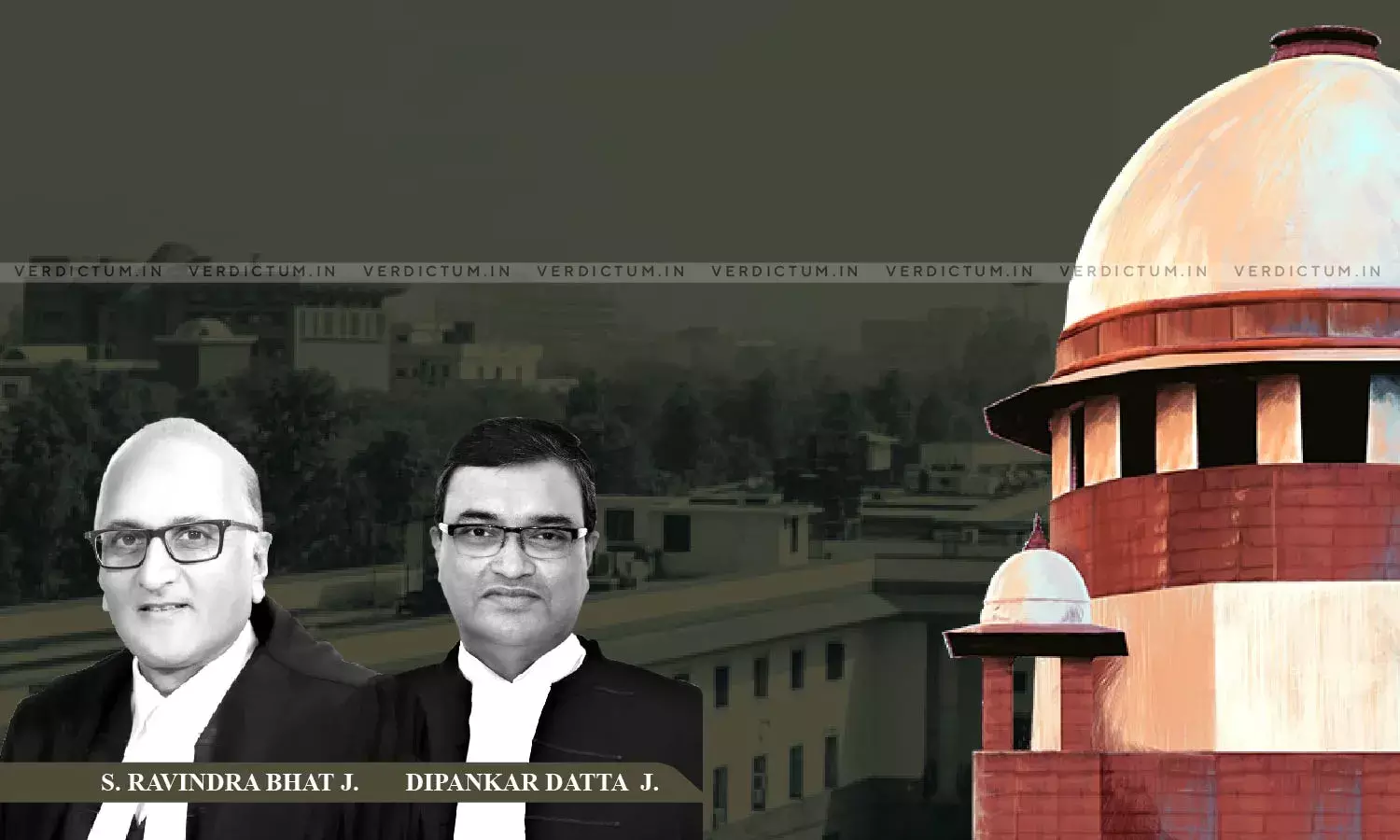"Fair Degree Of Uncertainty In Prosecution Story Affects Object Of Finding Out Truth"- SC While Acquitting Murder Convicts

The Supreme Court acquitting the murder convicts observed that if there was a fair degree of uncertainty in the prosecution story and the Courts below did not take into consideration the effect of other attending evidence, then that order required interference as such lacunas affect the object of finding out the truth.
The Bench of Justice S. Ravindra Bhat and Justice Dipankar Datta held, "There is a fair degree of uncertainty in the prosecution story and the courts below appear to have somewhat been influenced by the oral testimony of PW-2 and PW-3, without taking into consideration the effect of the other attending circumstances, thereby warranting interference."
The Court also observed that "mere defects in the investigative process by itself cannot constitute ground for acquittal, it is the legal obligation of the Court to examine carefully in each case the prosecution evidence de hors the lapses committed by the Investigating Officer to find out whether the evidence brought on record is at all reliable and whether such lapses affect the object of finding out the truth."
In this case, the appeal had been preferred against the judgment and order of Allahabad High Court wherein conviction under section 302 of IPC was upheld on the grounds that the version of eyewitnesses was found to be reliable and trustworthy which unmistakably pointed to the guilt of the accused/appellant.
Advocate Mukesh K. Giri appeared for the appellants and Advocate Sanjay Kumar Tyagi appeared for the respondent.
The Apex Court observed that the previous history of enmity between the deceased and the appellants relating to property dispute was evident from the deposition of the eyewitnesses as that dispute ended in murder of father of one of the appellants/accused.
“it could be established that PW-2 nurtured personal ill-will towards the appellants and the possibility of PW-2 having acted with intention to keep the appellants away from legal proceedings as well as interference in property rights cannot be totally ruled out; hence, PW-2 being inimical to the appellants, his testimony has to be taken with a pinch of salt.” observed the Court.
The Court further noted that on proper evaluation of the various facts and circumstances of the case, it had transpired that there were reasons for which eye witness PW-2 might have falsely implicated the appellants and that eye witness PW-3 was not a wholly reliable witness.
“This Court is, therefore, of the firm view that the oral testimony of PW-2 and PW-3 is not free from doubt and their evidence not being of unimpeachable quality, the rule of prudence would demand a corroboration of their versions from other witnesses who, according to PW-2 and PW-3, were present at the place of occurrence and witnessed the murder of Narayan.” observed the Court.
Therefore, “There is a fair degree of uncertainty in the prosecution story and the courts below appear to have somewhat been influenced by the oral testimony of PW-2 and PW-3, without taking into consideration the effect of the other attending circumstances, thereby warranting interference.” observed the Court.
Consequently, the Court setting aside the Trial’s Court judgment, being unsustainable observed that the charge of murder could not be said to be proved beyond reasonable doubt. Hence, they were entitled to the benefit of doubt.
Accordingly, the Court acquitted the appellants and allowed the appeal.
Cause Title- Munna Lal v. The State of Uttar Pradesh
Click here to read/download the Judgment

